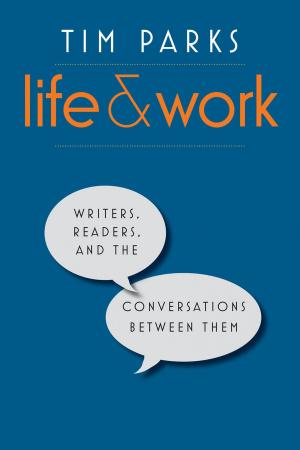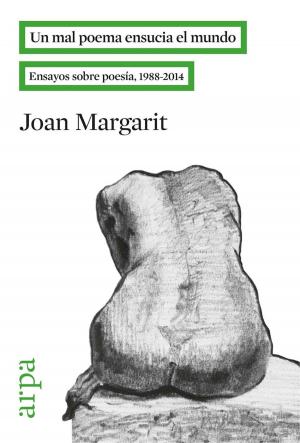| Author: | Bob Knight Barsch | ISBN: | 9781310512896 |
| Publisher: | Bob Knight Barsch | Publication: | February 4, 2015 |
| Imprint: | Smashwords Edition | Language: | English |
| Author: | Bob Knight Barsch |
| ISBN: | 9781310512896 |
| Publisher: | Bob Knight Barsch |
| Publication: | February 4, 2015 |
| Imprint: | Smashwords Edition |
| Language: | English |
Man's nature is to live by bias rather than reason. That is the reason that looking at the facts of any issue is important. I suggest that this collection of seven essays looks at familiar and accepted viewpoints with the tools of known facts, reason and logic. I suggest that though my findings are out of sync with the flow of current culture, the facts, the pesky details, show these findings to be correct.
My seven essays analyze the following questions in detail:
-
Is Western culture's view of natural resource exploitation/extraction Bible-based?
-
Is the "scientific" view that the arrangements of tiny "particles" (packets of energy) determine all reality and that, therefore, free will is an illusion no more than an adopted, metaphysical belief? How does an adopted assumption compare with experiential religious faith? Of course, if God exists, experiencing God could be an actual event. Who can argue with another person's experience? And on the other hand, a scientific materialist who believes free will is an illusion must also logically concede that his beliefs and the expression of them are all forced by his physiology and not governed by independent reason and the discipline of logic.
-
Do comparisons of biblical teachings with social behaviors among various organisms point to the existence of an absolute ethic?
-
Does the appearance of free will in mankind constitute a literal miracle? How does an otherwise determined universe determine that not all things are determined? It cannot. What does that logic indicate about the origin of the ability to alter determined chains of causes and effects?
-
Do the facts show that the origins of homosexuality are largely the result of unfortunate parenting, cultural promotion, and/or, in the case of some individuals, bad choices?
-
What common environmental conditions produce inconsistencies in radiometric dating? Why do geophysicists, paleontologists, astrophysicists, and other scientists continue to ignore the facts of those inconsistencies? Are the rocks as old as the experts claim?
-
Darwin's basic ideas are 2,500 years old. What are the pesky details pointed out in this page by page critique of his On the Origin of Species? What are his consistent errors and self-contradictions? Because paleontological evidence fails to support Darwinian gradualism, what are the new guesses about origins? To my knowledge, no other source aside from this work provides a page by page critique of Darwin's "towering genius". Was he an icon of intellectual progress or possibly "a king without any clothes." You decide.
Your choice, because you have the miracle of free will, is to dig into the details of these essays and persist in your pursuit of knowledge or simply explore in order to counterattack and defend your preferred beliefs. And that is important because our biases define who we are. They are a big part of one's identity. Take some time and prove me wrong. I accept reason but you must be reasonable and not violate logic, or perhaps, you can be clever and clandestine. Maybe that would work.
Regards, Bob
Man's nature is to live by bias rather than reason. That is the reason that looking at the facts of any issue is important. I suggest that this collection of seven essays looks at familiar and accepted viewpoints with the tools of known facts, reason and logic. I suggest that though my findings are out of sync with the flow of current culture, the facts, the pesky details, show these findings to be correct.
My seven essays analyze the following questions in detail:
-
Is Western culture's view of natural resource exploitation/extraction Bible-based?
-
Is the "scientific" view that the arrangements of tiny "particles" (packets of energy) determine all reality and that, therefore, free will is an illusion no more than an adopted, metaphysical belief? How does an adopted assumption compare with experiential religious faith? Of course, if God exists, experiencing God could be an actual event. Who can argue with another person's experience? And on the other hand, a scientific materialist who believes free will is an illusion must also logically concede that his beliefs and the expression of them are all forced by his physiology and not governed by independent reason and the discipline of logic.
-
Do comparisons of biblical teachings with social behaviors among various organisms point to the existence of an absolute ethic?
-
Does the appearance of free will in mankind constitute a literal miracle? How does an otherwise determined universe determine that not all things are determined? It cannot. What does that logic indicate about the origin of the ability to alter determined chains of causes and effects?
-
Do the facts show that the origins of homosexuality are largely the result of unfortunate parenting, cultural promotion, and/or, in the case of some individuals, bad choices?
-
What common environmental conditions produce inconsistencies in radiometric dating? Why do geophysicists, paleontologists, astrophysicists, and other scientists continue to ignore the facts of those inconsistencies? Are the rocks as old as the experts claim?
-
Darwin's basic ideas are 2,500 years old. What are the pesky details pointed out in this page by page critique of his On the Origin of Species? What are his consistent errors and self-contradictions? Because paleontological evidence fails to support Darwinian gradualism, what are the new guesses about origins? To my knowledge, no other source aside from this work provides a page by page critique of Darwin's "towering genius". Was he an icon of intellectual progress or possibly "a king without any clothes." You decide.
Your choice, because you have the miracle of free will, is to dig into the details of these essays and persist in your pursuit of knowledge or simply explore in order to counterattack and defend your preferred beliefs. And that is important because our biases define who we are. They are a big part of one's identity. Take some time and prove me wrong. I accept reason but you must be reasonable and not violate logic, or perhaps, you can be clever and clandestine. Maybe that would work.
Regards, Bob















